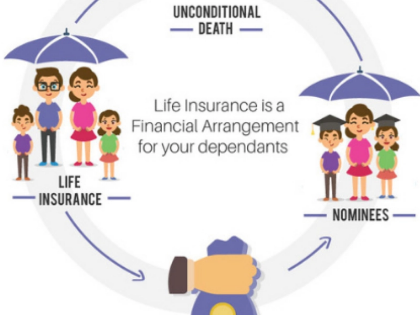The Value of Health Insurance and Preventive Care
The brief discomfort of a needle poke or the time invested in routine wellness examinations might have a significant positive impact. By lowering the burden of disease, preventive treatment has a significant positive social and economic benefit. Plans for health insurance usually have a monthly premium in addition to fees (usually in the form of deductibles, coinsurance, and/or copays) that you must pay when using healthcare services. Generally speaking, preventive care is far less expensive than medical care.
Price
 In the long run, using preventive care can save on expenditures. Lower health insurance premiums, fewer ER visits, and reduced usage of emergency services are all results of less expensive medical care.
A number of preventative care services, such as routine vaccinations, screening tests for specific diseases and ailments, and patient counseling, must be covered by most insurance plans without requiring you to pay out-of-pocket (OOP). When deciding which preventive services to cover, most health plans heed the advice of the Advisory Committee on Immunization Practices and the U.S. Preventive Services Task Force.
Participating industry experts in this study stated that although the majority of providers recognize the advantages of preventative treatments for patients and the health system overall, they don't always implement them into their practices because of a lack of financial incentives. Encouraging leadership and a shift in the attitude of the health system as a whole are necessary to ensure that more people access preventive care services.
In the long run, using preventive care can save on expenditures. Lower health insurance premiums, fewer ER visits, and reduced usage of emergency services are all results of less expensive medical care.
A number of preventative care services, such as routine vaccinations, screening tests for specific diseases and ailments, and patient counseling, must be covered by most insurance plans without requiring you to pay out-of-pocket (OOP). When deciding which preventive services to cover, most health plans heed the advice of the Advisory Committee on Immunization Practices and the U.S. Preventive Services Task Force.
Participating industry experts in this study stated that although the majority of providers recognize the advantages of preventative treatments for patients and the health system overall, they don't always implement them into their practices because of a lack of financial incentives. Encouraging leadership and a shift in the attitude of the health system as a whole are necessary to ensure that more people access preventive care services.
Well-being
 In addition to improving people's quality of life, preventive treatment can stop or delay the development of medical disorders. Immunizations, regular examinations, and screening tests are a few examples of these services. When compared to addressing chronic or advanced health concerns, which may include lengthy hospital stays, prescription medication, and surgery, they are frequently significantly less expensive.
Preventive treatment improves not just individual health but also society at large. For instance, high vaccination rates contribute to the public's and individuals' protection against communicable diseases. In the same way, early diagnosis and treatment of diseases like cancer can prevent fatalities.
Numerous Americans do not receive the necessary preventative treatment, despite the substantial financial and health benefits. Copayments and deductibles, among other financial obstacles, discourage a lot of people. To guarantee that every American has access to the necessary preventive treatment, health care systems and payers must remove these obstacles. They also need to figure out how to reward preventive healthcare. One way to do this would be to establish wellness programs that offer incentives for adopting healthy living practices.
In addition to improving people's quality of life, preventive treatment can stop or delay the development of medical disorders. Immunizations, regular examinations, and screening tests are a few examples of these services. When compared to addressing chronic or advanced health concerns, which may include lengthy hospital stays, prescription medication, and surgery, they are frequently significantly less expensive.
Preventive treatment improves not just individual health but also society at large. For instance, high vaccination rates contribute to the public's and individuals' protection against communicable diseases. In the same way, early diagnosis and treatment of diseases like cancer can prevent fatalities.
Numerous Americans do not receive the necessary preventative treatment, despite the substantial financial and health benefits. Copayments and deductibles, among other financial obstacles, discourage a lot of people. To guarantee that every American has access to the necessary preventive treatment, health care systems and payers must remove these obstacles. They also need to figure out how to reward preventive healthcare. One way to do this would be to establish wellness programs that offer incentives for adopting healthy living practices.
Life Quality
 It is far more cost-effective to invest in preventive care than in treating health problems once they arise. In order to preserve excellent health, preventive healthcare involves routine checkups and immunizations as well as screenings that identify diseases and ailments that are easier to cure if discovered early in life.
These preventative measures can include routine blood tests that detect illnesses like excessive cholesterol and immunizations that help patients become resistant to infectious diseases. Additionally, it may entail patient counseling and education regarding risk-reducing healthy lifestyle options, including quitting smoking or participating in weight-loss programs.
Sadly, a large number of people do not have access to these crucial preventive interventions. This is particularly true for Americans with low incomes, who, in comparison to their richer counterparts, frequently have lower rates of receiving suggested preventative services. This is partly because many individuals are unclear about which preventative care they need and because visiting the doctor is stigmatized. They are also worried about the expense of their medical care.
It is far more cost-effective to invest in preventive care than in treating health problems once they arise. In order to preserve excellent health, preventive healthcare involves routine checkups and immunizations as well as screenings that identify diseases and ailments that are easier to cure if discovered early in life.
These preventative measures can include routine blood tests that detect illnesses like excessive cholesterol and immunizations that help patients become resistant to infectious diseases. Additionally, it may entail patient counseling and education regarding risk-reducing healthy lifestyle options, including quitting smoking or participating in weight-loss programs.
Sadly, a large number of people do not have access to these crucial preventive interventions. This is particularly true for Americans with low incomes, who, in comparison to their richer counterparts, frequently have lower rates of receiving suggested preventative services. This is partly because many individuals are unclear about which preventative care they need and because visiting the doctor is stigmatized. They are also worried about the expense of their medical care.
Momentum
 A variety of examinations, supplies, and services make up preventive care, which aids in your doctor's ability to identify health issues before they worsen. In order to help you make better decisions that will prolong your health, it also includes counseling and education about leading a healthy lifestyle. A few instances of preventive treatment are annual physicals, vaccinations, and screenings such as pap smears and mammograms.
According to our research, there is a considerable rise in the risk that you will not receive preventive healthcare if you have gaps in your insurance coverage, in addition to a number of other characteristics like race or ethnicity, education, place of residence, and English proficiency. Nevertheless, unlike many other risk factors, gaps in insurance coverage are ones that can be changed.
A number of preventative services, such as vaccinations and screenings, must be covered by most plans under the Affordable Care Act without requiring you to pay a copayment or deductible. However, despite these regulations, some families will still be prevented from receiving the necessary tetanus shots, well-baby checkups, and cancer screenings due to the high expense of health insurance.
A variety of examinations, supplies, and services make up preventive care, which aids in your doctor's ability to identify health issues before they worsen. In order to help you make better decisions that will prolong your health, it also includes counseling and education about leading a healthy lifestyle. A few instances of preventive treatment are annual physicals, vaccinations, and screenings such as pap smears and mammograms.
According to our research, there is a considerable rise in the risk that you will not receive preventive healthcare if you have gaps in your insurance coverage, in addition to a number of other characteristics like race or ethnicity, education, place of residence, and English proficiency. Nevertheless, unlike many other risk factors, gaps in insurance coverage are ones that can be changed.
A number of preventative services, such as vaccinations and screenings, must be covered by most plans under the Affordable Care Act without requiring you to pay a copayment or deductible. However, despite these regulations, some families will still be prevented from receiving the necessary tetanus shots, well-baby checkups, and cancer screenings due to the high expense of health insurance.











